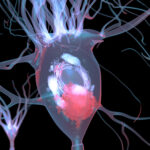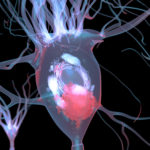Archives
Drug trial seeks participants with Lewy body dementia
27 March 2024

A drug trial aimed at treating memory and thinking problems in people with Lewy body dementia is recruiting participants through Join Dementia Research. The COmBining memantine And cholinesterase inhibitors in Lewy body dementia Treatment (COBALT) trial is looking at whether giving an Alzheimer’s drug to people with Lewy body dementia can help improve their symptoms. […]
Lewy body dementia studies currently recruiting participants
19 February 2024

Accounting for 10-15 percent of dementia cases in the UK, Lewy body is the second most common form of dementia. However, the recent World Lewy Body Day brought into sharp focus the fact that very little is known about this form of dementia, highlighting the need for more research. Lewy body dementia is caused by […]
South London researcher uses Join Dementia Research to boost recruitment
10 July 2023

Olga Borejko, a researcher and project manager at the Department of Old Age Psychiatry, King’s College London, spoke about the benefits of using Join Dementia Research to boost recruitment to a study into dementia with Lewy bodies (DLB), supported by the National Institute for Health and Care Research. Olga sets up and manages commercial and […]
Could an anti-sickness drug treat hallucinations?
16 August 2022

A national research study is investigating whether a readily available anti-sickness drug could treat dementia-related hallucinations. The Trial of Ondansetron as a Parkinson’s HAllucinations Treatment, or TOP HAT study, is recruiting volunteers across England, Scotland and Wales to evaluate whether ondansetron, an anti-sickness drug used in the NHS, could also be used for treating hallucinations […]
Lewy body dementia studies currently recruiting participants
29 October 2021

October marks Lewy body dementia awareness month. The condition – sometimes called dementia with Lewy bodies – is one of the most common forms of dementia after Alzheimer’s disease and vascular dementia, yet surprisingly little is known about it. When someone develops this type of dementia, protein deposits called Lewy bodies develop in the brain […]
Exploring the relationship between Lewy body dementia and delirium
19 April 2021

Lewy body dementia (LBD) is one of the most common forms of dementia. The symptoms of LBD can affect a variety of brain functions including; thinking, attention, sleeping and perception. It is often difficult to diagnose and can appear similar to other medical issues such as delirium. Researchers at the University of Cambridge are looking […]
‘LewyPro’
26 February 2016
The ‘LewyPro’ study is looking to improve diagnosis of Dementia with Lewy Bodies, a serious condition. Aims of the Study Dementia with Lewy Bodies (DLB) is the second most common cause of dementia in older people, after Alzheimer’s Disease. However, it is not yet well understood in the medical community, and can frequently be misdiagnosed […]
The HALL-VIS-ATT Study
The ‘HALL-VIS-ATT’ aims to help researchers and doctors understand the upsetting symptoms of hallucinations in dementia. Aims of the Study People with Parkinson’s Disease with Dementia, and people with Dementia with Lewy Bodies, often have distressing visual hallucinations. It is not known why these visual hallucinations occur. Some aspects of visual hallucinations are related to poor vision […]
The ‘AMPLE’ Study
The ‘AMPLE’ study, which is based at the University of Newcastle upon Tyne, investigates ‘amyloid imaging’ for the observable characteristics of Dementia with Lewy Bodies (DLB), which is the second most common cause of degenerative dementia in the UK. Beta-amyloid is a protein, deposits of which can be found in the brain of a person who has Alzheimer’s Disease. Until recently, […]
The ‘VEEG-Stim’ Study
The ‘VEEG-Stim’ study is aimed at using technology to help us understand what causes the upsetting visual hallucinations in some dementias. Aims of the Study Visual hallucinations are a common and often upsetting symptom of the ‘Lewy body dementias’, which includes Dementia with Lewy bodies and Parkinson’s disease dementia. However, very little is known about the […]
